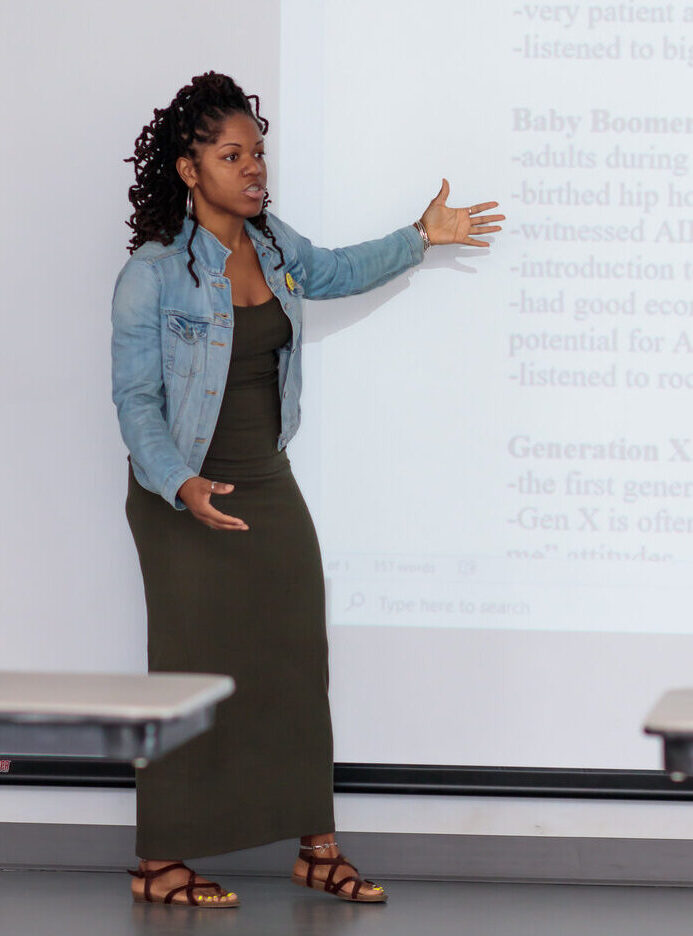What I Say to My Kids About Code-Switching and Talking Black

When I say “my kids,” I’m referring to the ones I birthed and the ones I teach during #KrakTeet4Kids workshops and camps. Literacy has been a big part of my teaching for 11 years now, and I do my best to maintain my values in my lessons. So being clear on what you believe and why you believe it is important here.
I do not believe that how black folk’s naturally express themselves is wrong. In fact, I think it’s better than mainstream American English. Alice Walker, when writing The Color Purple, stressed to her editors that how Celie talked wasn’t just equal to how Nettie talked; it was superior to it. (Nettie was raised and taught by Christian missionaries.)
“The American Negro has done wonders to the English language.” —Zora Neale Hurston
I already loved how Black folks talked, but Zora broke it down and showed me what I love so much about it. She also said that, next to being naturally dramatic (or extra), “the will to adorn is the second most notable characteristic in Negro expression.” We gon’ dress it up, especially with metaphors and similes, double descriptions, and verbal nouns.
So these are some of the first lessons I share with my kids. It’s important for them to understand that ain’t nothing wrong with how they talk. It’s just a difference between Black English (or, more specifically for this area, Gullah Geechee) and “school talk.” Then we put those differences into practice.
For example, I wrote on the board “He’s four years old.” Then I asked them to tell me how this phrase would be said in Black English. I always start verbal because most kids hate writing just as much as (they think) they hate reading. I ask questions like how they would spell “four” in Black English. I spell it fo’ and most of them spell it “foe” or “fo.”
My purpose here was to emphasize that, Black English has rules too but also that, generally speaking, as long as we understand what you’re saying, we ain’t tripping on how you spell it. Mother can be mama, mamma, momma, etc. Either way, we know what you saying. After they trust that they pretty much can’t do it wrong, then we start putting it on paper.
We also talk about the metaphors, double descriptions, and verbal nouns that Zora was talking ’bout:
- Example metaphor Zora used: “One at a time, like lawyers going to heaven.”
- Double description she used: “Low-down” and “Speedy hurry”
- Verbal noun: “I wouldn’t friend with her” and “Uglying away”
Before they finish my class(es), they know that:
- Ain’t nothing wrong with how they naturally express themselves. What Black folks have done to the English language is genius.
- Black talk has rules and rhythms.
- Language is a lil’ different based on things like geography and generation.
- The purpose of language is to understand and be understood.
- It’s (currently) in your favor to know how to do both.
It’s (currently) in your favor to know how to do both.
So, in addition to translating from school talk to Geechee, we also translate from Geechee to school talk. In the last summer camp, I played a five-minute clip of my interview with Roosevelt Rouse for the kids. While listening, they also had a print out of the transcription (it was written just as pronounced.) One of our assignments was taking a few of Roosevelt’s lines and translating them into school talk. “I wa’nt gettin’ in no gang” was one of ’em, for example.
And I say “currently” to them when I explaining why getting a good grasp on school talk is important because it might not always be that way. I pray that code-switching won’t always be necessary. But, as it stands, it helps to navigate this world knowing how to do both—especially for testing/grading purposes.
What code-switching is and how it affects us...We talk about that too.
Code-switching is something I’m still learning about. Not too long ago, I thought it was just switching up how you talk with different groups of people. Then I realized I wasn’t just changing up how I was talking but how I acted, dressed, and even making sure my edges were laid ’round certain people/places. Outta all the definitions I read, I liked this one:
“Broadly, code-switching involves adjusting one’s style of speech, appearance, behavior, and expression in ways that will optimize the comfort of others in exchange for fair treatment, quality service, and employment opportunities.” —“The Cost of Code Switching“
With kids, I give examples instead of a definition. And get them to keep adding to the examples. Most definitions just point to language, but it’s deeper than that and it includes a few reasons why we do it. That’s why I like this definition. The group who wrote the article “designed an online experimental study for almost 350 black and white participants recruited on CloudResearch and living in the U.S. to determine how they evaluated code-switching behaviors.” (The article is about what they learned from the study.)
In my TedX Talk, I said one way that we colonize ourselves is by offering nicknames when our names require assistance in pronunciation before they even finish trying to enunciate. The article spoke on the same thing too, using the example of Lamar/La’Keisha telling their coworkers that they can call them Matt/Renee at work. Code-switching runs deep.
Sometimes it is necessary though. I naturally talk fast and I have an accent. I’m used to people needing me to repeat myself. So, in certain instances, I use a lil mo effort to slow it down by enunciating more letters in the words (e.g., when I speak on stages). After all, the goal is to be understood.
“What good do yo’ words do if they can’t understand you?” —Erykah Badu
I try to be mindful of where/when I’m adjusting myself and why I’m doing it (is it to be seen in a particular light?). That’s what I tell the kids too. Don’t pocket your language (and, thus, yourself) out of shame though! Only to be understood. If you ain’t careful, you’ll lose yourself. Most times when we code-switching, we’re wearing a mask. If you do it to be accepted, there’s a laundry list of other things you’ll find yourself dissatisfied with too. So learn how to do it, but understand why you’re doing it when you are.

